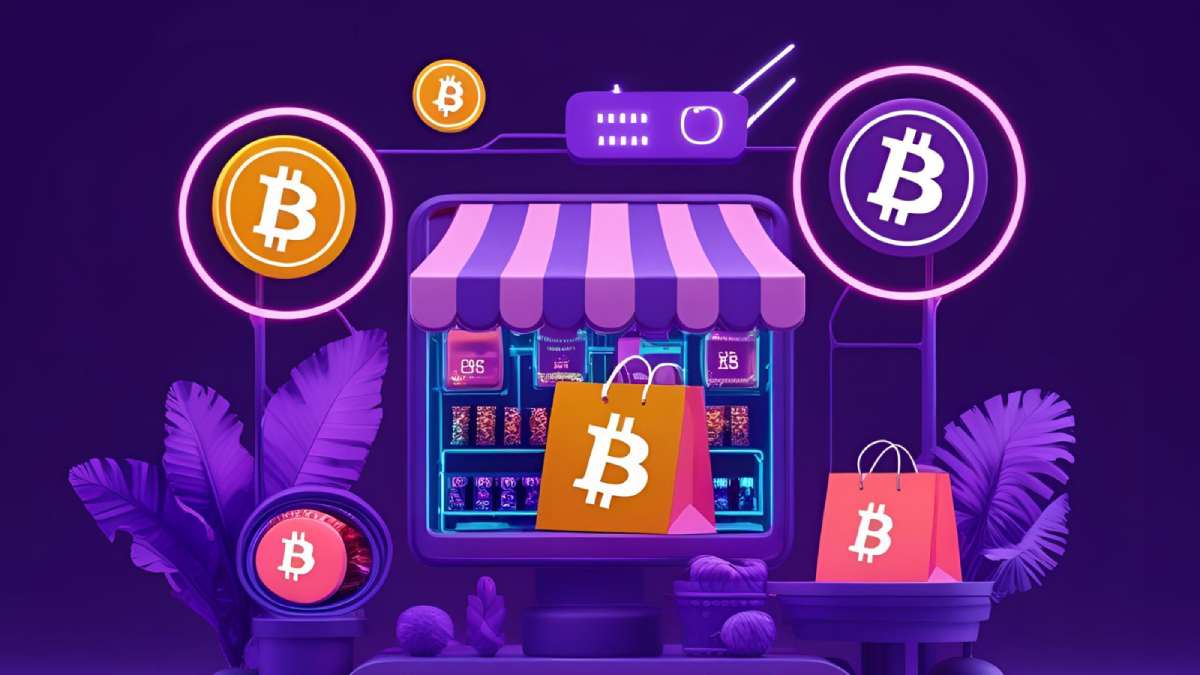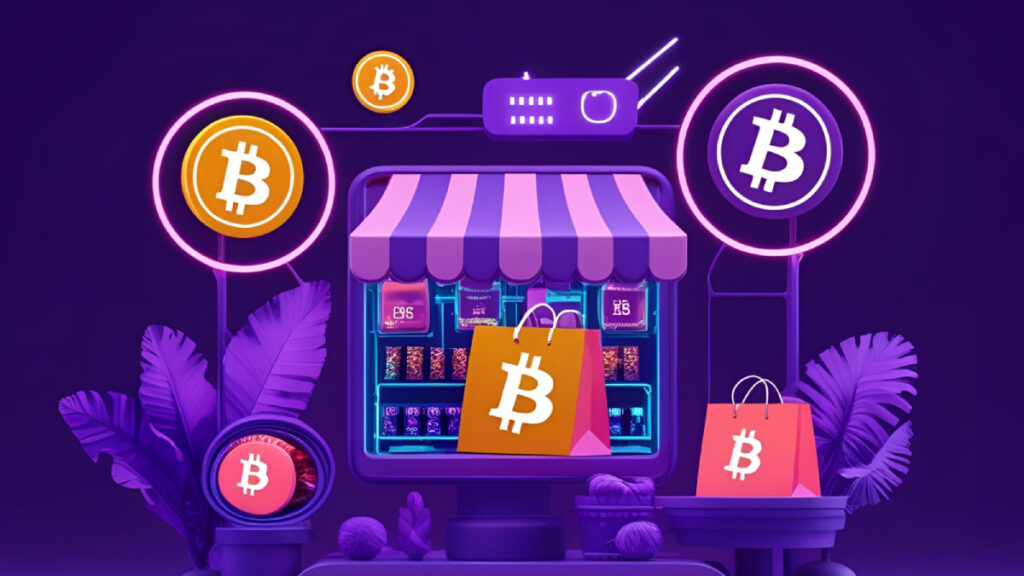
Bitcoin has grown from a speculative asset into a global payment method. What was once viewed as a tech experiment now powers real-world commerce across industries—from cafes to car dealerships. In 2025, paying with Bitcoin is not just a trend—it’s becoming a practical and empowering way to shop online and off.
Today’s buyers and sellers are seeking more control, privacy, and efficiency in their transactions. And platforms like Hamza, a decentralized marketplace designed for crypto commerce, are making it easier than ever to pay with Bitcoin for everyday products, digital goods, and even high-value items like cars or real estate. As Bitcoin payments go mainstream, it’s clear that the future of commerce is borderless, peer-to-peer, and increasingly powered by crypto.

Why People Are Choosing to Pay with Bitcoin
Bitcoin enables fast, secure transactions without relying on traditional banks or payment processors. Whether you’re buying a cup of coffee or closing on a piece of property, Bitcoin transfers value globally in minutes—not days. This ability to instantly move money across borders is especially valuable for online shoppers who want to avoid exchange rates, high processing fees, or bank restrictions.
Here’s why more people are choosing to pay with Bitcoin:
- Speed and Global Reach
Transactions settle within minutes, allowing for near-instant value transfer across borders without banking delays.
- Lower Fees
Especially for cross-border payments, Bitcoin can significantly reduce transaction costs compared to credit card processing fees (often 2–4%). Using Layer 2 solutions like the Lightning Network makes fees even cheaper.
- Greater Privacy
Bitcoin allows pseudonymous transactions. Unlike credit cards, it doesn’t require personal details like billing addresses, offering a more private way to pay.
- Censorship Resistance
Once confirmed on the blockchain, Bitcoin transactions cannot be reversed or blocked. This protects users from account freezes or arbitrary payment rejections.
- Financial Autonomy
Individuals and businesses can transact freely without needing permission from banks or third-party platforms, making Bitcoin especially valuable in underbanked regions or restrictive economies.
Real-World Adoption Is Scaling Up
Bitcoin is now accepted by more merchants than ever. From digital platforms to luxury brands, companies are integrating crypto to meet customer demand and align with a decentralized future. Tech firms like Microsoft and PayPal were early adopters, and now retailers such as Starbucks, Whole Foods, and even Netflix (in pilot markets) are incorporating Bitcoin payments. High-end fashion houses and boutique retailers are following suit, recognizing the potential to reach a new generation of crypto-native consumers.
Decentralized marketplaces like Hamza are pushing adoption even further by building crypto into the core of their platforms. Hamza’s soon-to-launch Bitcoin payment option empowers buyers and sellers to transact directly, without intermediaries, and expands the marketplace’s accessibility. Sellers benefit from reaching global crypto users, while buyers gain an easy, secure way to pay in Bitcoin without navigating off-platform wallets or exchange rates.
Beyond retail, Bitcoin is increasingly used in high-value transactions. Car dealerships in several countries now accept Bitcoin for vehicle purchases, and some property developers allow buyers to pay for real estate in BTC. These use cases prove that Bitcoin isn’t just for microtransactions—it’s trusted for life-changing purchases. The combination of transaction transparency, security, and global reach makes it ideal for large deals that would otherwise require complex bank transfers or escrow services.
Empowering Sellers Through Direct Payment
For online merchants, accepting Bitcoin offers more than just a new payment option—it creates new opportunities. Sellers no longer need to worry about chargebacks, since Bitcoin transactions are final once confirmed. This reduces fraud and gives greater control over cash flow.
In emerging markets where banking access is limited or restricted, Bitcoin allows sellers to receive payments directly and instantly. That makes it possible to participate in global e-commerce without relying on centralized payment providers that may block or delay funds.
Platforms like Hamza are especially useful in this context. As a crypto-native marketplace, Hamza gives sellers the infrastructure to accept Bitcoin and other digital currencies while protecting their autonomy. Instead of being subject to the whims of banks or platform algorithms, sellers operate on decentralized rails, backed by smart contracts and on-chain transparency.
Why Buyers Prefer Paying with Crypto in 2025
Many consumers are shifting away from fiat because Bitcoin aligns with their values—privacy, independence, and control. The process of paying with Bitcoin today is simple. Wallets have improved dramatically, offering a clean user interface, instant QR scanning, and the ability to send or receive in seconds. Most wallets now support Bitcoin and Layer 2 options for faster, cheaper payments.
Shopping with Bitcoin also gives access to crypto-exclusive products and discounts. Many merchants incentivize crypto payments by offering special pricing or loyalty perks, further encouraging adoption. For those already holding Bitcoin, spending directly—without converting to fiat—adds convenience and avoids extra fees.
Buyers also benefit from the growing cultural adoption of Bitcoin. From gamified campaigns to digital collectibles linked to purchases, the crypto economy is becoming more interactive and community-driven. Payment isn’t just a financial act—it’s part of a broader Web3 experience.
The Road Ahead: More Than a Payment Option
Bitcoin’s role in online commerce is no longer limited to tech enthusiasts or niche retailers. In 2025, it’s a serious alternative to fiat currency, offering a viable option for daily transactions and large purchases alike. As infrastructure improves and platforms like Hamza make crypto-native shopping more accessible, Bitcoin’s utility as a payment method will only expand.
What began as a fringe movement is now being integrated into mainstream commerce—and not just as an option, but as a preferred method by many. With speed, security, and freedom built into its DNA, Bitcoin is redefining what it means to shop online.
If you’ve never paid with Bitcoin, now’s the time to explore what’s possible. Whether it’s a simple T-shirt or a luxury item, the future of shopping is fast, borderless, and decentralized—and platforms like Hamza are already building it.
